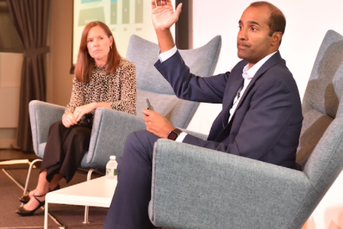Robinhood adds market manipulation and gamification to a quiver of woes

The free-trading app faces renewed accusations that its platform is manipulative amid a decision to halt certain trades just a month after Massachusetts regulators accused it of ‘gamification.’
Robinhood is under fire — yet again — as accusations that the free app is manipulating its users’ trading activity continue to stack up amid the GameStop stock surge and media mayhem of the past week.
Robinhood’s decision to block retail investors from trading GameStop Corp., AMC Entertainment Holdings Inc. and other shorted stocks while hedge funds are freely able to trade the stocks as they see fit was met with outrage and skepticism from customers and even U.S. political leaders.
Adding to Robinhood’s troubles, consumer lawsuits against Robinhood for blocking GameStop trading have started to be brought by angry investors. The legal fight comes after a group of digitally oriented traders who gathered in Reddit’s r/WallStreetBets forum sent shares of GameStop and other companies soaring, with the apparent goal of causing losses to hedge funds that were shorting the stocks.
In a lawsuit filed Thursday in New York, Robinhood user Brendon Nelson of Massachusetts said: “Robinhood purposefully, willfully, and knowingly removing the stock ‘GME’ from its trading platform in the midst of an unprecedented stock rise thereby deprived retail investors of the ability to invest in the open-market and manipulating the open-market.”
The manipulation includes Robinhood purposefully slowing the growth of GameStop’s stock to manipulate the market for the benefit of people and financial intuitions who were not Robinhood’s customers, according to the complaint.
While other users claim in court filings that they suffered losses from the restrictions, legal experts say brokerages have broad powers to block or restrict transactions — all of which is spelled out as part of customer agreements everyone signs to gain access to the services.
The allegations against Robinhood have fueled speculation and internet conspiracy theories that Robinhood’s restrictions were influenced by powerful hedge funds that were suffering as a result of these stocks surges, according to Ritholtz Wealth Management CEO Josh Brown.
“That’s my favorite colorful conspiracy theory,” he said during The Compound podcast on Friday. Yet, Brown said he believes there is some truth to the idea that powerful people wanted the stock surge to stop.
“In the end, there’s a self-preservation mechanism here,” he said. “The main thing that you have to understand is that Wall Street will always change the rules in order to survive.”
Additionally, there’s speculation that Robinhood put a stop to GameStop stock trades, among others, in order to save its payment for order flow business model, which is how the free-trading app earns a profit, said Tim Welsh, president of Nexus Strategy.
“The e-brokers have to listen to their payment-for-order-flow buyers and remove those toxic names from the flow, or the whole zero commission model falls apart,” Welsh said.
Still, Robinhood is pushing a different message to its users.
On Thursday, Robinhood sent an email, obtained by InvestmentNews, to its customers stating the decision to limit buying for certain securities was made without any outside influence.
“To be clear, this decision was not made on the direction of any market maker we route to or other market participants,” according to Robinhood’s email.
“The past year in particular has shown us that the financial markets are for everyone — not just institutional investors and hedge funds,” the email stated. “We’ve seen a new generation enter the market, and they’re sparking conversations about what it means to be an investor. We stand in support of you, our customers. Democratizing finance for all means giving more people access, not less.”
THE GAMIFICATION FACTOR
Let’s not forget that just last month Robinhood was slapped with charges from Secretary of the Commonwealth of Massachusetts William Galvin over its gamification strategy despite any praise the fintech received for democratizing the market.
Gamification strategies in the Robinhood app — like sending daily push notifications or displaying confetti raining down after each trade — are used to “lure customers” into consistent participation and long-term engagement with its trading platform which, in turn, generates more revenue for the app, according to Galvin’s complaint.
Robinhood’s tactics could be seen as addictive and manipulative, according to Daniel Simon, CEO of Vested. “Hacking human psychology to improve how we interface with products and services can be used for good and ill,” Simon said. “With any good user experience, companies can improve their products, making them simpler and easier to use, but can also manipulate their customers.”
Yet, gamification is a tried-and-true practice and Robinhood is far from the only company using similar tactics. Popular apps, like the fitness app Peloton, use gamification to capture their users’ attention and influence their behavior to keep them engaging with their products. Fintechs like Betterment, Wealthfront, Acorns and Stash use push-button notifications and similar techniques.
The problem is that Robinhood’s strategies encourage frequent trading, regulators say, which can lead to significant losses for investors. They also differ from those used by other digital apps that encourage seemingly beneficial habits like fitness, saving or financial planning, said Sophie Schmitt, senior analyst with the Aite Group.
“[Online banking apps] encourage healthy financial habits,” Schmitt said. “Online trading has the potential to set back young investors from achieving financial goals. And that likelihood expands if the app encourages frequent engagement, which can lead to quick decisions driven by emotions.”
Learn more about reprints and licensing for this article.








